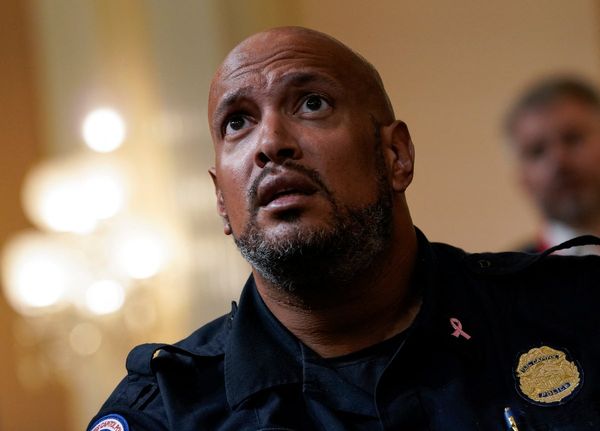FIGURES showing that more than half of Scotland’s councillors own property while only seven percent are tenants “underlining” barriers for minority groups seeking elected office, an investigation has found.
The National’s exclusive series delving into the registers of interests of almost 1200 local authority members in 31 council’s has already uncovered that almost 60% have second jobs, with 124 employed as parliamentary staffers for MSPs and MPs. We told how the £18,600 councillor salary has been cited as a factor, with umbrella body Cosla campaigning for a Real Living Wage to be brought in.
In the third and final instalment, our analysis focused on the housing entries of each councillor where publicly available. We categorised entries from 28 local authorities, with Highland, East Dunbartonshire and East Ayrshire stating the housing entries for the register are available in person only and there was no legal requirement for it to be online, while Moray and Falkirk did not respond to our press request. Glasgow entries stated the location.
From this detailed analysis of 1005 councillors’ registers of interests we established that 783 had declared their housing circumstances, 78% of those available, with the majority left blank.
Of those councillors who did fully declare, homeowners outstripped tenants by a clear margin, and many had more than one property.
Register entries showed from 783 councillors, over half of 86.5% (678) owned at least one property our analysis found. The figures showed that in comparison only 11% (85) of councillors had declared themselves as tenants, both private and social, 7% Scotland-wide. Ten councillors stated that they both owned and rented a property, seven occupiers of a property and one resident.
Living Rent, Scotland’s tenant’s union, said the findings showed renters were “vastly underrepresented” across local authorities, while others said it showed the level of stability required to take on such a low-paid demanding role requiring long hours.
The National’s data investigation also established that 43 (5.5%) council members stated they receive rental income or are a registered landlord, while a further 131 (17%) logged more than one property under the “houses, lands and buildings” section. The information available made it difficult to establish if these properties were let out, a holiday home, or other arrangement. However, we did conclude that 22% (174) own at least two properties,14% of Scotland’s overall councillors.
Although Glasgow entries did not state if the councillor owned or rented the property, 11 councillors owned more than one property, with two declaring interests as a landlord. North Ayrshire had the most landlords (5), followed by Angus and Fife (4). Of the latter authority’s 74 representatives, our analysis could only establish that five owned property, while 70 registered the ward location of their dwelling.
Elsewhere, Shetland, Perth & Kinross, Aberdeen City, Aberdeenshire have three landlords, and Dumfries and Galloway councillors registers confirmed three had interests as a landlord, while a fourth declared that their spouse did.
West Lothian, Dundee, and Comhairle nan Eilean Siar (two) also elected landlords, as did South Lanarkshire, Renfrewshire, Orkney, Moray, Midlothian, Edinburgh, and East Ayrshire (one). While Moray and Highland did not have full housing data available, one councillor at each authority declared interests as a landlord.
Eight councillors declared ownership of a croft, primarily in island councils; Comhairle nan Eilean Siar, Shetland, Orkney, and one councillor from Aberdeen city. While three councillors rent a croft, one councillor declared his wife’s croft rental, and another declared they owned a house and croft, but rented out the house.
Meg Bishop, secretary of Living Rent, said that as 38% of Scots rent property either through a private or social landlord, our analysis showed a large slice of the population are unde chambers.
“With councils granted considerable power when it comes to housing, it is vital that we have councillors who are able to reflect the interests of tenants,” she said.
“Tenants need councillors who are able to make decisions based on the interests of the community but with 14% of councillors owning more than one property and at least 5% of those landlords, it is clear that councils have entrenched in them interests that go against the interests of tenants.
“Consideration and support for tenants is even more vital in this cost of living crisis and we need councillors putting forward the interest of their constituency and specifically those who are worst hit by the crisis, who are tenants.”
Marion Davis, director of policy at One Parent Family Scotland (OPFS), said the findings “underlined” the inequality and multiple barriers facing single parents and other minority groups to participation in politics.
‘OWNING your own home requires a certain level of income and job security to save up for a deposit, which is sadly not the reality for many single parents,” she said.
“Single parents have the lowest wealth and lowest savings of any household type in Scotland, and just 29% own property – considerably less than any other group.
“If people with less access to wealth in Scotland are less able to stand for and gain elected office, it is going to be far harder for decisions to be made which accurately reflect their needs, and our democracy is not going to be truly representative of the diversity of our society.”
However, Cosla argued that the figures were broadly reflective of the population. At the last census, around 62% of people in Scotland owned the property they lived in.
“Councillors are part of their community and are no different to other members of these communities,” a spokesperson said. “In fact it is often an interest in communities and the betterment of services in these local communities that attract many people to stand for election.”
Ariane Burgess MSP, the Scottish Greens local democracy spokesperson, said: “Our local authorities must be genuinely rooted in our communities and should always represent the people and communities they serve.
“Having a greater array of voices in the room can change the decisions that are made, that is why all parties need to do more to encourage women, young people, disabled people, people of colour and people from other underrepresented groups to stand.”
Perth and Kinross councillor Peter Barrett, the LibDem spokesperson for local government, said: “It’s right for councillors to have to declare any relevant interests so that the public have the full picture but I don’t see the sense in prohibiting them from renting out properties. There are many landlords who provide an excellent service for their tenants.
“Scottish Liberal Democrats backed measures such as a rent freeze and a winter evictions ban during the cost of living crisis and our councillors have consistently campaigned to ensure that everyone has access to a secure and affordable roof over their heads.”
The SNP, Scottish Tories and Scottish Labour did not respond to our request for comment.







